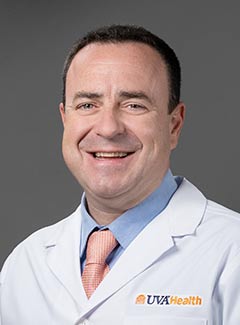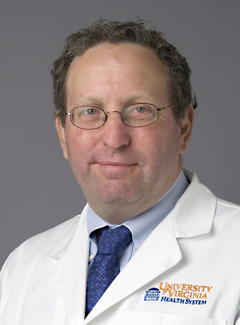6/17/2025
Dr. Abbate and his team collaborate on, develop, and execute bench-to-bedside research exploring the impact of innate immunity and its role in cardiovascular disease and injury (ischemia, reperfusion, infection, heart…
6/17/2025
Our goal is to understand how the brain integrates sensory feedback to control specific autonomic responses that restore physiologic balance. We are also interested in the cross-talk between cardiorespiratory physiology…
6/17/2025
Dr. Annex's clinical and research interests include a multidisciplinary program in angiogenesis (the growth of new blood vessels) that is focused mainly on peripheral arterial disease (PAD), in which blockages…
6/17/2025
Machine Learning/AI for Biomedical Applications: Development of innovative advanced machine learning approaches including knowledge-guided meta-learning explainable machine learning frameworks that take advantage of the relationships between genes, cell types, clinical variables,…
6/17/2025
6/17/2025
Cilia are evolutionary conserved subcellular organelles essential for various cellular functions including homeostasis, sensing external stimuli and mechanosensation. Dysfunctional cilia are implicated in a number of chronic disabling conditions in…
6/17/2025
The lab is interested in understanding the epigenetic (and genetic) regulation of the oxytocin receptor in the context of human and animal social behavior.
6/17/2025
Our research aims to uncover the molecular mechanisms driving atherosclerosis, a chronic inflammatory disease that leads to major adverse cardiovascular events (MACE), such as myocardial infarction (MI) and stroke—two of…
6/17/2025
The Dudley Lab, associated with the Department of Microbiology, Immunology and Cancer Biology (MIC), is focused on the tumor microenvironment and mechanisms of tumor neovascularization. We use transgenic tumor models,…










